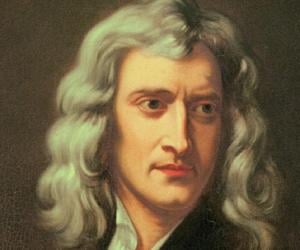


He also formulated an empirical law of cooling, studied the speed of sound, and proposed a theory of the origin of stars. Newton notably argued that light is composed of particles. In optics, he invented the reflecting telescope and discovered that the spectrum of colours observed when white light passes through a prism is inherent in the white light and not added by the prism (as Roger Bacon had claimed in the thirteenth century). In mechanics, Newton also notably enunciated the principles of conservation of momentum and angular momentum. The unifying and deterministic power of his laws was integral to the scientific revolution and the advancement of heliocentrism. By deriving Kepler's laws of planetary motion from this system, he was the first to show that the motion of objects on Earth and of celestial bodies are governed by the same set of natural laws. His treatise Philosophiae Naturalis Principia Mathematica, published in 1687, described universal gravitation and the three laws of motion, laying the groundwork for classical mechanics. Sir Isaac Newton, FRS (4 January 1643 – 31 March 1727) was an English physicist, mathematician, astronomer, alchemist, and natural philosopher, regarded by many as the greatest figure in the history of science. Physicist, mathematician, astronomer, alchemist, and natural philosopher Woolsthorpe-by-Colsterworth, Lincolnshire, England Sir Isaac Newton at 46 in Godfrey Kneller's 1689 portraitĤ January 1643


 0 kommentar(er)
0 kommentar(er)
